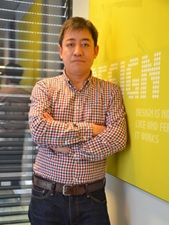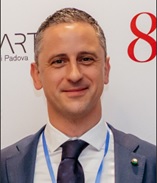History
PST 2022, CanadaPST 2021, New Zealand
PST 2019, Canada
PST 2018, UK
PST 2017, Canada
PST 2016, New Zealand
PST 2015, Turkey
PST 2014, Canada
PST 2013, Catalonia
PST 2012, France
PST 2011, Canada
PST 2010, Canada
PST 2009, Canada
PST 2008, Canada
PST 2007, Canada
PST 2006, Canada
PST 2005, Canada
PST 2004, Canada
Program
The PST 2023 Final Program is ready (Academic Conference + Industry Summit + Workshops) here!
All registered attendees can access our PST Inside system for more details
PST 2023 - Industry Summit
Speaker details - Click here
Registration details - Click here
Program details - Click here
PST 2023 - Academic Conference
Keynote Speakers:
Bio: Dr. Qiang Tang is a Research Group Leader at the Luxembourg Institute of Science and Technology (LIST). Before joining LIST, he has worked as a postdoc researcher at University of Luxembourg, University of Twente, ENS Paris respectively. He received his Ph.D. degree from Royal Holloway, University of London, and received his MSc and BSc degrees from China. His research interests include (but not limited to) applied cryptography, privacy enhancing technologies, and the intersection between AI/ML and cybersecurity. His research group at LIST covers a wide range of topics on cybersecurity, digital twin and data spaces, and disruptive technologies such as Blockchain and 5G, from both technological and GRC (governance, risk, and compliance) perspectives.
Title: ML-based attack detection: a case study for Telecom networks
Abstract: Starting from detecting Spams in email services, Machine Learning (ML) algorithms have been used to fight fraud and cyberattacks for several decades. The breakthrough in Deep Learning (DL) a decade ago has drastically improved the performance of ML in different applications, notably in computer vision. Recently, this trend has been accelerated further by the Large Language Models (LLMs). In this talk, we will first survey the development in ML and its application in attack detection, and subsequently elaborate on the importance of datasets by focusing on the imbalance Issue in (software) vulnerability detection. Then, we will dive into attack detection in Telecom networks and demonstrate the empirical results of a dozen of DL models on both real-world and simulated datasets. Finally, we will highlight some challenges and lessons learned in our research.
Bio:
Pierangela Samarati is a Professor at the Department of Computer Science of the Università degli Studi di Milano, Italy. Her main research interests are on data and applications security and privacy, especially in emerging scenarios. She has participated in several EU-funded projects involving different aspects of information protection, also serving as project coordinator. She has published more than 290 peer-reviewed articles in international journals, conference proceedings, and book chapters. She has been Computer Scientist in the Computer Science Laboratory at SRI, CA (USA). She has been a visiting researcher at the Computer Science Department of Stanford University, CA (USA), and at the Center for Secure Information Systems of George Mason University, VA (USA). She is the chair of the IEEE Systems Council Technical Committee on Security and Privacy in Complex Information Systems (TCSPCIS), of the ERCIM Security and Trust Management Working Group (STM), and of the ACM Workshop on Privacy in the Electronic Society (WPES). She is a member of several steering committees. She is IEEE Fellow (2012), ACM Fellow (2021), IFIP Fellow (2021). She has received the ESORICS Outstanding Research Award (2018), the IEEE Computer Society Technical Achievement Award (2016), and the IFIP WG 11.3 Outstanding Research Award (2012).
Title: Controlled data sharing in distributed collaborative scenarios
Abstract:
The availability of highly performing systems and services (e.g., cloud/fog/edge/IoT) for gathering, storing, and processing data, and of analysis techniques on large data collections, bring great benefits on a personal, business, economic and social level. The collection, sharing, and analysis of data, with contributions from different sources and different actors are in fact great enabling factors for the increasingly digitally evolved society. This typically also involves data management and computation by external storage and computational providers that may be not fully trusted. In this talk, I will address in particular: the protection of data in the context of collaborative distributed computation involving different authorities and computational providers, and the support of query execution on data stored at external not fully trusted providers.
Bio:
Liqun Chen is a Professor in Secure Systems at the University of Surrey. Prior to taking this position in 2016, she was a principal research scientist at Hewlett-Packard Laboratories, Bristol, UK. She developed several cryptographic schemes that were adopted by International Standards bodies, ISO/IEC, IEEE and TCG (Trusted Computing Group). In particular, she designed several cryptographic algorithms (including direct anonymous attestation and the multiple signature interfaces) used in the Trusted Platform Module (TPM). She co-authored the paper “Direct anonymous attestation”, which was originally published at ACM CCS 2004 and received a Test of Time award at ACM CCS 2014. She was the technical leader and principal investigator in the EU H2020 FutureTPM project, which identified and developed algorithms for a TPM that will be secure against quantum computer attacks. She is also a principal investigator in five other EU Horizon projects, which make use of trusted computing and distributed ledger technologies to achieve security, privacy and trust in real world applications. Her current research interests are applied cryptography, trusted computing, and network security.
Title:
How to Align Trusted Computing with Security and Privacy?
Abstract:
In cyber security applications, balancing privacy, security and trust is challenging but necessary. In this talk, we will focus on trusted computing, particularly the use of its core technology – attestation services – to enhance security. We will discuss how to extend the techniques of attesting to a single device to complex computer systems, such as computer networks, and how to preserve privacy in those services. Finally, we will discuss how to achieve trusted computing in the long term, by which we mean that its privacy/security/trust features should not be limited by the lifetime of any underlying cryptographic algorithms.
Bio:
Mauro Conti is Full Professor at the University of Padua, Italy. He is also affiliated with TU Delft and University of Washington, Seattle. He obtained his Ph.D. from Sapienza University of Rome, Italy, in 2009. After his Ph.D., he was a Post-Doc Researcher at Vrije Universiteit Amsterdam, The Netherlands. In 2011 he joined as Assistant Professor at the University of Padua, where he became Associate Professor in 2015, and Full Professor in 2018. He has been Visiting Researcher at GMU, UCLA, UCI, TU Darmstadt, UF, and FIU. He has been awarded with a Marie Curie Fellowship (2012) by the European Commission, and with a Fellowship by the German DAAD (2013). His research is also funded by companies, including Cisco, Intel, and Huawei. His main research interest is in the area of Security and Privacy. In this area, he published more than 500 papers in topmost international peer-reviewed journals and conferences. He is Editor-in-Chief for IEEE Transactions on Information Forensics and Security, Area Editor-in-Chief for IEEE Communications Surveys & Tutorials, and has been Associate Editor for several journals, including IEEE Communications Surveys & Tutorials, IEEE Transactions on Dependable and Secure Computing, IEEE Transactions on Information Forensics and Security, and IEEE Transactions on Network and Service Management. He was Program Chair for TRUST 2015, ICISS 2016, WiSec 2017, ACNS 2020, CANS 2021, CSS 2021, WiMob 2023 and ESORICS 2023, and General Chair for SecureComm 2012, SACMAT 2013, NSS 2021 and ACNS 2022. He is Fellow of the IEEE, Fellow of the AAIA, Senior Member of the ACM, and Fellow of the Young Academy of Europe.
Title: Covert & Side Stories: Threats Evolution in Traditional and Modern Technologies
Abstract: Alongside traditional Information and Communication Technologies, more recent ones like Smartphones and IoT devices also became pervasive. Furthermore, all technologies manage an increasing amount of confidential data. The concern of protecting these data is not only related to an adversary gaining physical or remote control of a victim device through traditional attacks, but also to what extent an adversary without the above capabilities can infer or steal information through side and covert channels! In this talk, we survey a corpus of representative research results published in the domain of side and covert channels, ranging from TIFS 2016 to more recent Usenix Security 2022, and including several demonstrations at Black Hat Hacking Conferences. We discuss threats coming from contextual information and to which extent it is feasible to infer very specific information. In particular, we discuss attacks like inferring actions that a user is doing on mobile apps, by eavesdropping their encrypted network traffic, identifying the presence of a specific user within a network through analysis of energy consumption, or inferring information (also key one like passwords and PINs) through timing, acoustic, or video information.
Important Dates
Paper Submission:May 20, 2023
Acceptance Notification:
June 18, 2023
Camera-Ready:
July 1, 2023
Author Registration:
July 1, 2023
Industry Summit Early Registration:
July 14, 2023
Conference Date:
August 21-23, 2023














